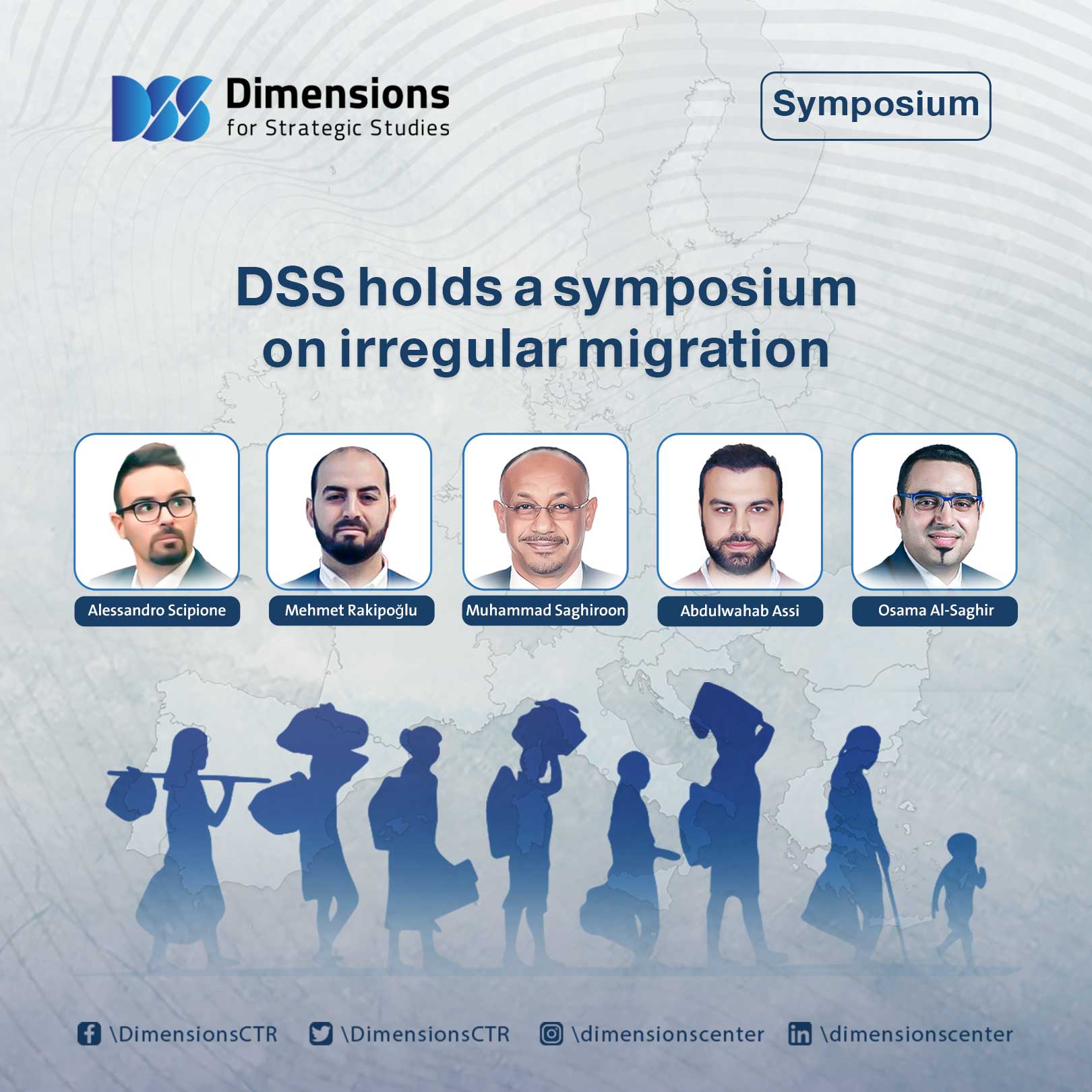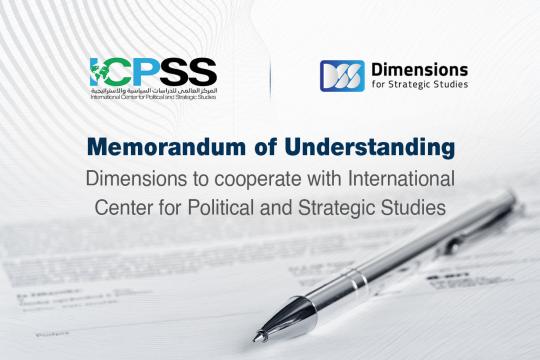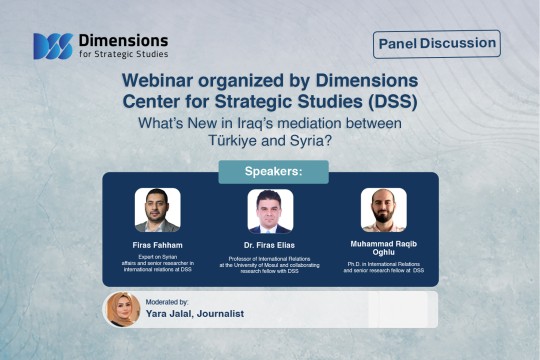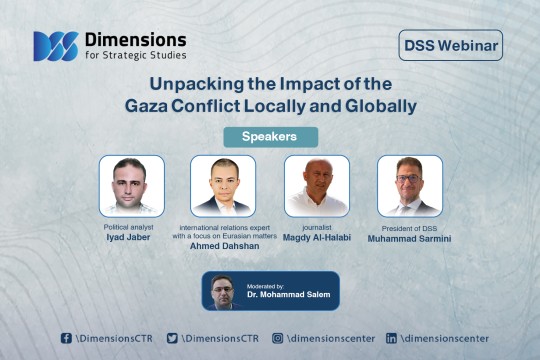
DSS holds a symposium on irregular migration
2023-06-034215 view
Under the title "Irregular Migration to Europe: A Comparison between Syrian Migration and Migration from North Africa," the Dimensions Center for Strategic Studies held on Wednesday, May 31, 2023, a symposium to discuss the phenomenon of irregular migration in the world. The symposium dealt with a number of patterns in countries exporting migrants, ones used as crossing points and those receiving them.
The dialogue was moderated by "Osama Al-Saghir", the coordinator of international relations at the Dimensions Center for Strategic Studies, in the presence of a group of experts in the field of immigration, namely the Italian researcher Alexandre Chipioni, the Syrian researcher AbdulWahhab Assi, the Turkish researcher Mehmet Rakipoğlu, and the Sudanese researcher Dr. Muhammad Saghiroon al-Faqi.
During the symposium, experts talked about the increasing number of immigrants. The Italian expert, Alexandre Chiboni, said that Libya is the first source country for a large number of immigrants. He added that at the beginning of this year; however, Tunisia became number one. Moreover, according to Chiboni, the migrants departing from Tunisia are not only Tunisians, but from different African countries as well.
Chiboni pointed out that Europe must adopt appropriate policies to deal with this increasing number and how to deal with the source countries, especially African countries. He added: "We need a more realistic vision, because what I have been observing so far in these European policies is just talk."
Regarding the infighting crisis taking place in Sudan, Chipioni noted that there is a new problem that may cause large waves of migration, as many Sudanese flee the war and go to Egypt. And these people will seek to reach Europe. He also made it clear that Europe needs to do something, and it has to have a more serious approach and a unified coherent policy towards Africa.
Regarding the migration to Turkey, the researcher at the Dimensions Center for Strategic Studies , Mehmet Rakipoğlu, said: “Turkey's social and economic conditions and stability make it a destination country for immigrants looking for better living conditions, noting that immigrants are not only Syrians, but also South Africans, Afghanis and Pakistanis”.
Oglu added that the Syrians in Turkey are asylum seekers, not refugees; because they were forced to leave their country as a result of a war waged against them by a brutal regime. They moved en masse as a family; but most of the Afghani and Pakistani immigrants are young males.
With regard to Turkey's policy of dealing with immigrants, Davutoglu indicated that there are several steps taken by Turkey with regard to border security and e-visa policies, especially for African immigrants who obtain e-visas easily and do not leave Turkish territory when it expires.
Oglu noted that Turkey has intensified its policy of dealing with irregular immigration, especially since 2017, as the year 2019 witnessed the largest number of irregular immigrants, while nearly half a million were arrested and about 200,000 irregular immigrants were deported.
Researcher AbdulWahhab Assi, head of the Studies Unit at Jusoor Center, referred to the refugee file as one of the most important political tools, that does not only affect countries receiving refugees or ones that are classified as transit countries, but rather goes beyond that to affecting the overall solution for this problem.
Asi added that the failure to find a political solution in accordance with United Nations resolutions will eventually lead to the continuation of the state of asylum, in addition to other issues related to the economic reality, especially after Corona, as many people are migrating to Turkey due to the economic situation and, of course, to the European Union countries.
As for the policies of voluntary return of refugees, Asi said that the policies adopted are not completely crystallized, as a safe environment for the Syrians in northern Syria needs to be provided. He pointed out that there are abuses against a number of refugees by taking them back to deportation centers, and then returning them to Syria.
Asi added that Turkey; however, can not be said to be forcing the Syrians to return despite the pressures that occurred in the past years. It is rather trying to provide an environment conducive to the return of refugees, and it has in fact tried to do so with European Union countries and is still trying to do so with some Gulf states.
He pointed out that Turkey has recently built housing complexes as part of its readiness to establish a housing project for the return of refugees, in which an industrial work environment is available as part of Turkey’s attempt to find solutions to crises and problems of governance; because, there is also an important security problem that hinders the return of refugees.
Dr. Saghiroon in his intervention stated that Sudan was, until recently, a corridor for irregular migration to Europe, especially for migrants from Eritrea, Ethiopia and West Africa, as they used to head from Sudan to Europe via Egypt or Libya. He said that the Rapid Support Forces, which are now fighting battles with the Sudanese army, were part of European arrangements agreed upon in Rome in 2015, as these forces were responsible for stopping migrants in the Darfur region.





